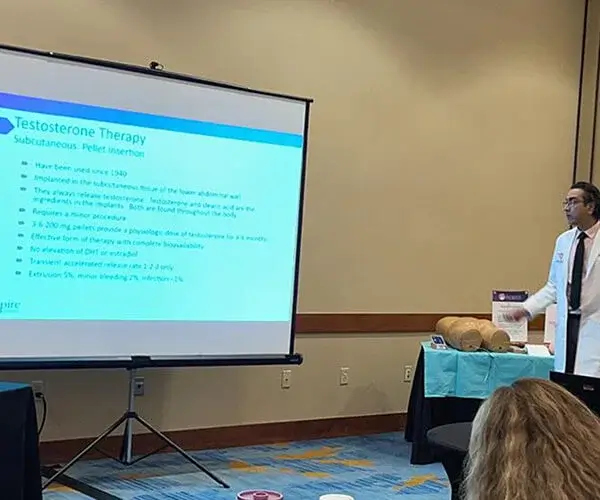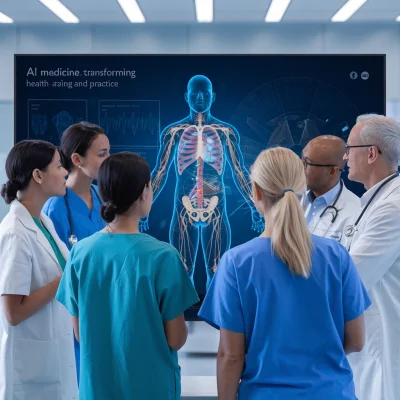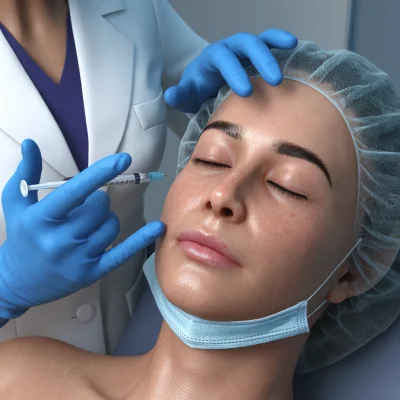As we move into and through middle age, our bodies’ hormone levels naturally decline. This is an inevitable part of the aging process.
Or is it?
While the mythical “fountain of youth” remains elusive, modern hormone replacement therapy (HRT) can temporarily turn back the clock on the unwanted side effects of aging. Here’s what you need to know about anti-aging hormone therapy.
What Are Anti-Aging Hormones?
The definition of “anti-aging hormone” depends on who you ask. No single hormone, or hormone cocktail for that matter, can literally reverse the aging process. But studies suggest that certain hormones can slow or stop physical and cognitive decline, at least temporarily.
These substances have the most evidence behind them and tend to factor into the most legitimate anti-aging programs.
Human Growth Hormone (HGH)
Human Growth Hormone, or HGH, is naturally produced by the pituitary gland. It’s particularly plentiful during childhood and early adulthood, when the body is growing rapidly and building muscle mass.
HGH production declines during middle age and beyond, which is why synthetic HGH is a core component of anti-aging therapies. In adults, HGH can increase muscle mass, reduce body fat, and enhance exercise capacity, among other benefits.
More so than other anti-aging hormones, HGH has potential for abuse and can be risky when used against medical advice. If you do plan to incorporate HGH into your anti-aging program, do so under the supervision of a board-certified provider who has completed an accredited anti-aging medicine training program.
Estrogen and Progesterone
Estrogen (estradiol) and progesterone are critical reproductive hormones. Among other effects, they regulate the menstrual cycle, and the onset of menopause brings changes (sometimes dramatic) in levels of both. They impact other aspects of physical health as well, including skin tone and overall health.
Bioidentical estrogen and progesterone can be delivered via hormone pellets for women as part of a more comprehensive anti-aging program. Be sure to use bioidentical rather than synthetic hormones, which can have adverse health impacts.
Testosterone
Testosterone is an important hormone for men and is found in lesser amounts in women as well. “T” levels naturally decline with age, dragging energy levels, exercise capacity, muscle-building ability, sex drive, and other “youthful” traits down with them.
Testosterone pellet therapy may help middle-aged men feel younger and regain some of the physical strength and stamina they enjoyed in their 20s and 30s. In older men (ages 60+), testosterone therapy may help stave off andropause, or “male menopause,” which may be associated with cognitive decline.
Bioidentical testosterone is tolerated relatively well in middle-aged and older men. Early studies suggested that “T” therapy may have adverse impacts on cardiovascular health. However, more recent research suggests something closer to the reverse: that chronic low testosterone is associated with increased risk for cardiovascular conditions such as atherosclerosis, which in turn increases heart attack and stroke risk.
DHEA (Dehydroepiandrosterone)
DHEA is naturally produced in the adrenal gland. It’s a “trigger” hormone that helps regulate the production of other important anti-aging hormones, such as estrogen and testosterone.
Like those hormones, DHEA levels peak in early adulthood and fall slowly afterward. Incorporating DHEA into an anti-aging program can help sustain testosterone and estrogen production and mitigate the visible effects of aging.






